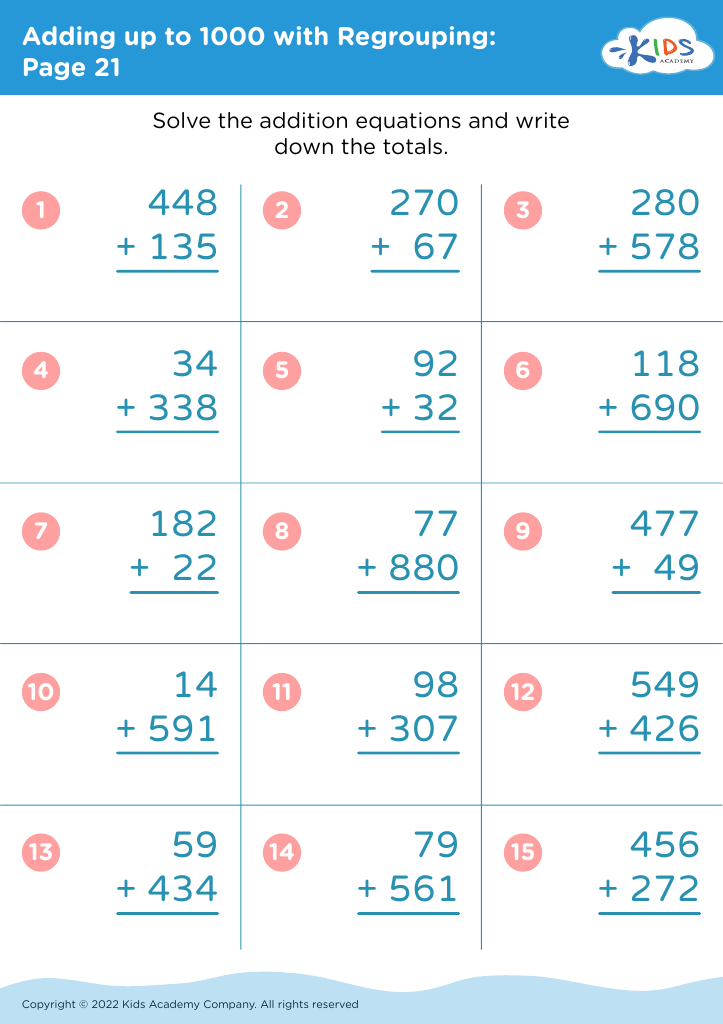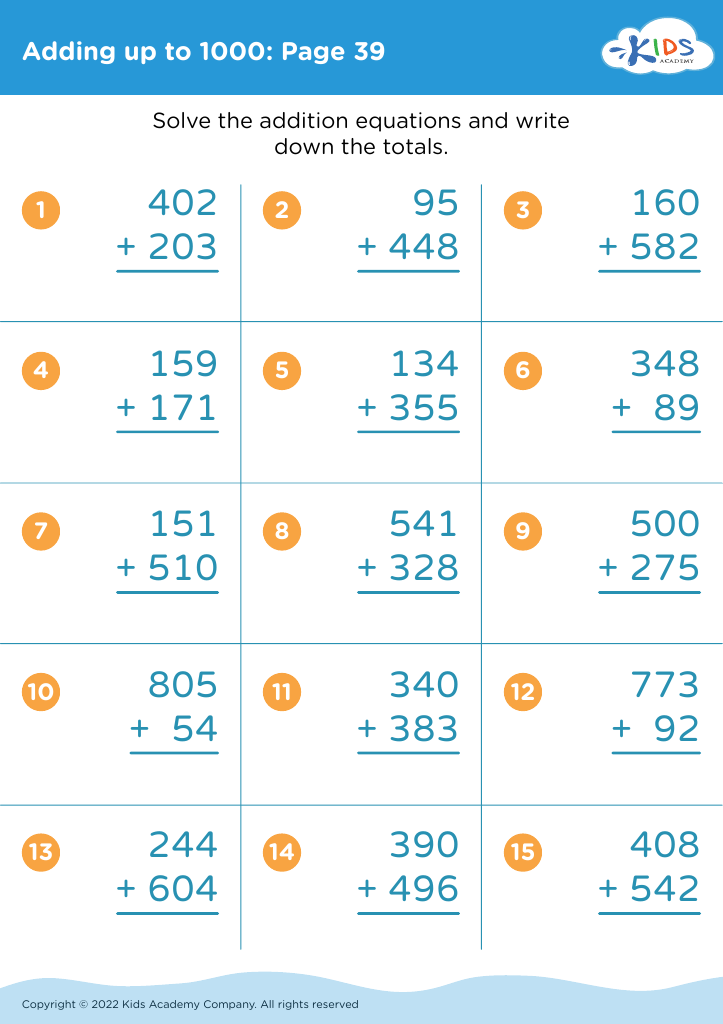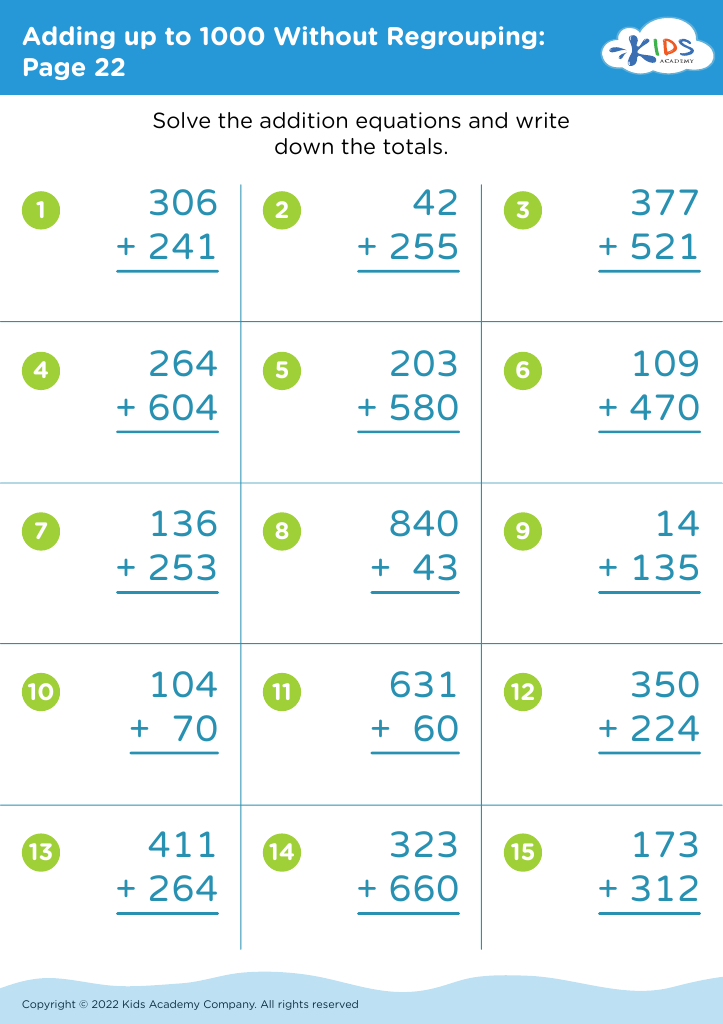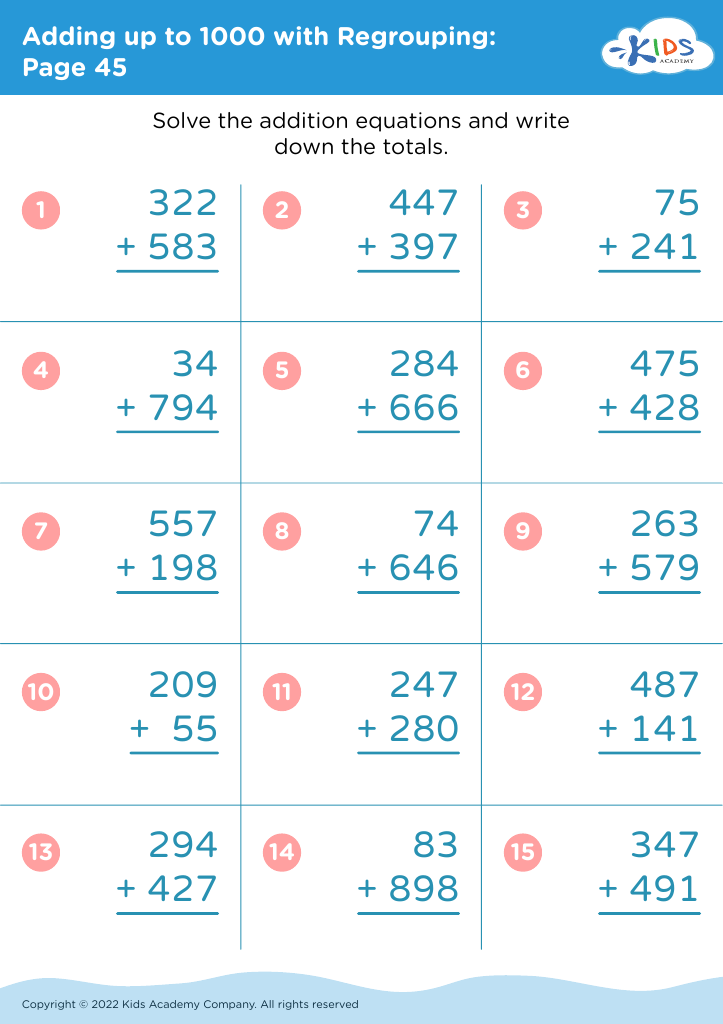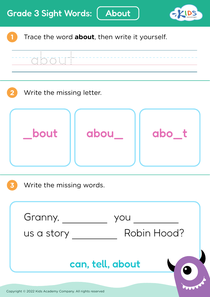Fine motor skills (writing) Grade 3 Addition Worksheets
5 filtered results
-
From - To
Enhance your Grade 3 students' fine motor skills with our engaging writing and addition worksheets! These printable activities are designed to support young learners in developing their handwriting abilities while reinforcing essential addition concepts. By combining practice with fun, our worksheets promote hand-eye coordination and dexterity, ensuring students build confidence as they write and solve problems. Ideal for classroom lessons or homework, these resources cater to various learning styles and needs. Help your child capture numbers with precision and creativity while mastering addition through our carefully crafted exercises. Explore the perfect balance of skill-building and enjoyment today!
Fine motor skills play a crucial role in a child's overall development, particularly in Grade 3, where writing and academic performance advance significantly. At this stage, children are not just learning to write letters but also to communicate ideas, organize thoughts, and express creativity through writing. Proficient fine motor skills, including grip strength and hand-eye coordination, are essential for children to write clearly and efficiently.
Teachers and parents should care about the development of these skills because they impact not only academic performance but also self-esteem and classroom participation. Children who struggle with fine motor skills may find tasks like writing frustrating, which can lead to a lack of confidence and hesitance to engage in classroom activities.
Moreover, writing is foundational for other subjects and fosters critical thinking. Activities designed to enhance fine motor skills, such as art projects, puzzles, and even specialized writing tools, can effectively support children's learning experiences. By prioritizing fine motor skills related to writing, parents and teachers set students on a path to succeed academically while also aiding their emotional and social growth. Thus, fostering these skills is essential for holistic child development in a crucial educational phase.
